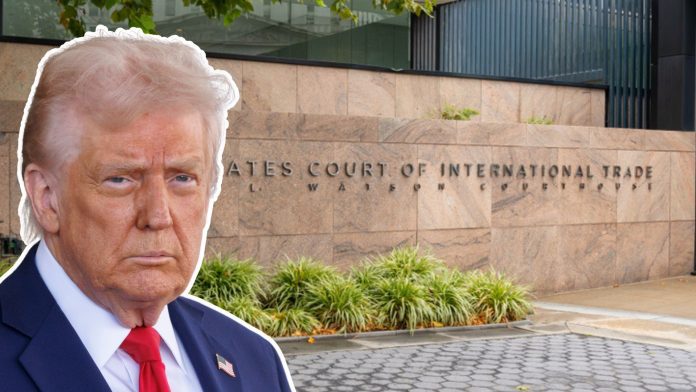In a setback for the White House, the U.S. Court of International Trade on Wednesday struck down most of President Donald Trump’s tariffs, ruling that he exceeded his legal authority by imposing sweeping duties on imports under emergency powers.
The three-judge panel issued a permanent injunction invalidating all of Trump’s across-the-board tariff orders since January, declaring they violated the Constitution, which reserves the power to regulate foreign commerce to Congress.
However, the decision does not affect industry-specific tariffs on products like steel, aluminum, and automobiles, which were enacted under a different statute. However, it halts the use of the International Emergency Economic Powers Act (IEEPA) to justify broad-based tariffs aimed at addressing the U.S. trade deficit.
Additionally, the ruling came from two lawsuits: one brought by five U.S. small businesses that import goods from affected countries, and another filed by 12 states. The companies said the tariffs created challenges for their operations and supply chains. The court concluded that if the tariffs were unlawful for the plaintiffs, they were unlawful for all affected parties.
Oregon’s attorney general, whose office led the state’s lawsuit, stated that the decision confirms that trade measures must adhere to existing law. Legal challenges to the tariffs continue in at least five other pending cases.
The administration introduced a 10% tariff on all imports in April, citing trade imbalances as justification under the International Emergency Economic Powers Act (IEEPA). Higher tariffs were proposed for certain countries, although those were subsequently paused. The baseline tariff remained in place for most nations.
IEEPA is typically used for financial sanctions and asset freezes involving national security concerns. This was the first time it was used to implement tariffs broadly. Legal analysts noted that while this ruling blocks the use of IEEPA in this context, other laws may still allow the government to apply targeted or sector-specific tariffs.
The court’s decision can be appealed to the U.S. Court of Appeals for the Federal Circuit and potentially the Supreme Court, meaning the legal outcome remains subject to further review.



